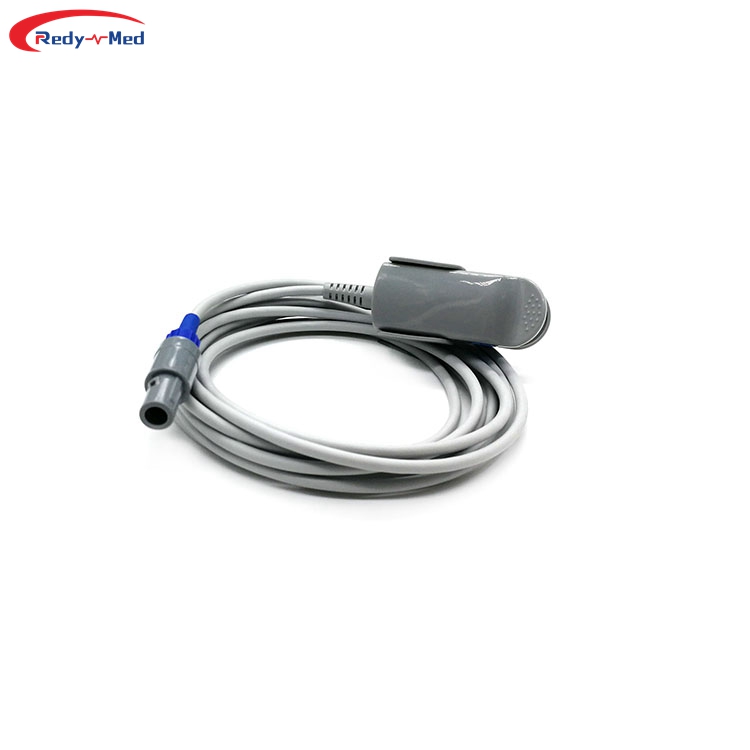
Disposable blood oxygen sensor is an essential choice for modern medical equipment
2024-03-21 00:03:27
The Crucial Role of Disposable Blood Oxygen Sensors in Modern Healthcare

Disposable blood oxygen sensors have become an indispensable choice for modern medical equipment, revolutionizing the way healthcare professionals monitor patients' oxygen levels. These sensors, also known as pulse oximeters, provide accurate and real-time readings, enabling timely interventions and enhancing patient care. In this article, we will delve into the importance, benefits, and applications of disposable blood oxygen sensors in the medical field.
1. The Significance of Disposable Blood Oxygen Sensors
Accurate measurement and monitoring of blood oxygen levels are paramount in diagnosing and managing various health conditions. Disposable blood oxygen sensors are specially designed to deliver reliable readings by utilizing the principle of pulse oximetry. This technology measures the oxygen saturation level in the blood, enabling healthcare professionals to assess patients' respiratory function efficiently.
With the advancement of medical technology, these sensors have become an essential tool in numerous clinical settings, including emergency rooms, operating rooms, intensive care units, and even home healthcare. They provide an immediate and non-invasive way to assess a patient's respiratory status, making them an indispensable asset for healthcare providers worldwide.
2. The Advantages of Disposable Blood Oxygen Sensors
Disposable blood oxygen sensors offer several advantages over reusable sensors, making them a preferred choice in medical environments:
Convenience: Disposable sensors eliminate the need for cleaning and reprocessing after each use, providing a hassle-free experience for healthcare professionals. Their single-use nature allows for quick and easy replacements, ensuring a hygienic and efficient workflow.
Accuracy: These sensors offer high levels of accuracy, especially when calibrated properly. With their ability to detect even slight changes in oxygen saturation, healthcare providers can make informed decisions and intervene promptly to prevent complications.
Cost-effectiveness: Disposable sensors eliminate the costs associated with cleaning, reprocessing, and maintenance of reusable sensors. They help reduce the risk of cross-contamination, ultimately resulting in improved patient outcomes and reduced healthcare expenses.
3. Diverse Applications in Modern Healthcare
Disposable blood oxygen sensors find applications in various medical scenarios, providing crucial insights and facilitating better patient care:
Emergency Medicine: In emergency situations, every second counts. Disposable blood oxygen sensors enable quick assessment of a patient's oxygen levels, allowing healthcare providers to prioritize treatment and make rapid decisions to save lives.
Monitoring during Surgery: Surgical procedures require continuous monitoring of patients' vital signs, including blood oxygen saturation. Disposable sensors allow for precisely tracking oxygen levels during operations, ensuring the safety and well-being of patients throughout the procedure.
Remote Patient Monitoring: With the rise of telemedicine, disposable blood oxygen sensors have become instrumental in remote patient monitoring. These sensors enable individuals to measure their own blood oxygen saturation levels in the comfort of their homes, facilitating early detection of respiratory issues and remote healthcare consultations.
Conclusion
Disposable blood oxygen sensors have transformed modern medical equipment and revolutionized patient care. With their convenience, accuracy, and affordability, these sensors have found extensive use across diverse medical settings, enabling healthcare providers to make informed decisions while ensuring patient comfort and safety. As technology continues to advance, disposable blood oxygen sensors are set to play an even greater role in the future of healthcare.
Get the latest price? We'll respond as soon as possible(within 12 hours)




